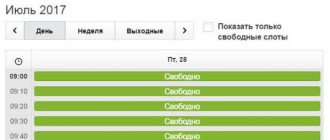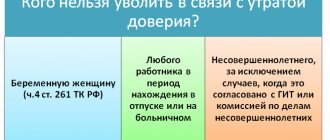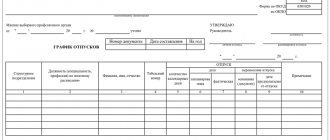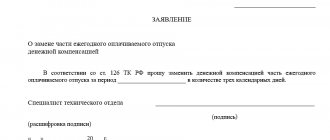In general, an employer does not have the right to require an employee to perform functions not provided for in the employment contract concluded with him. However, there is an exception to this rule, which is called “production necessity”.
The occurrence of such circumstances allows the company to keep the employee on overtime hours or temporarily transfer him to another position. However, the administration’s decision must be supported by supporting documents, otherwise the organization faces fines and problems with the state labor inspectorate. We will tell you in the article what the 2021 Labor Code of the Russian Federation says about production needs.
The concept of production necessity in 2021 according to the Labor Code of the Russian Federation
Labor legislation does not contain a clear concept of production necessity, however, the Labor Code of the Russian Federation often directly affects this category. In particular, Art. 101, 125, 113, 99, 72.2 Labor Code of the Russian Federation. In addition, it is contained in Federal Law No. 417 of December 7, 2011. In the above standards, production necessity is mentioned in connection with:
- the emergence of an urgent need to prevent a disaster;
- the need to eliminate the accident and/or eliminate its consequences in the workshop where production activities are carried out;
- minimizing the destructive consequences of natural disasters;
- preventing situations that could lead to accidents;
- prevention of financial and/or property losses;
- appointing an employee to replace an absent colleague.
In these cases, the management staff makes certain management decisions, the most common of which is calling subordinates back from vacation or promptly transferring them to other positions.
Standards for issuing personal protective equipment
The organization is obliged to suspend from work an employee who refuses to use the PPE issued to him.
Previously on the topic:
Can traveling workers store PPE at home?
A new version of Article 221 of the Labor Code of the Russian Federation appears in the Labor Code of the Russian Federation. A list of products that belong to PPE has been added to it.
The list of PPE now includes:
- special clothing and special shoes,
- dermatological protection products,
- protective equipment for respiratory organs, hands, head, face, hearing, eyes,
- fall protection equipment,
- other personal protective equipment
The list is open; the organization has the right to supplement it with the necessary PPE, taking into account its specifics. The Ministry of Labor must approve uniform standard standards for the issuance of personal protective equipment and flushing agents.
Types of production necessity and situations causing it
Based on Art. 72.2 of the Labor Code of the Russian Federation, the employer has the right to transfer a subordinate to a position for a period of up to 1 calendar month, even if this is not stated in the subject’s employment agreement. At the same time, the employee’s consent is not mandatory. A written agreement is only necessary if the employed person is transferred to a position with lower qualifications than his current job requires. Thus, translation in case of production necessity is carried out in the following circumstances :
emergency situations caused by natural or man-made accidents;- fires and earthquakes;
- mass starvation;
- various epidemics.
In fact, it refers to any circumstances in which the inhabitants of a state are exposed to serious danger. Measures taken in these conditions are aimed at eliminating negative impacts on people's health and lives.
There are often situations when employers use the concept of production necessity in order to attract subordinates to additional work. However, this category can only be used if the following grounds exist:
- emergency incidents that are civil in nature or lead to the introduction of martial law;
- natural disasters;
- production downtime for any unforeseen reason;
- the need for an employee to replace his absent colleague due to an emergency;
- restoration of property that has been damaged and is owned by the business entity.
Production necessity is a forced measure. Manipulations with the reshuffling of personnel within the company without significant reasons for this are unlawful.
Restrictions for the employer
Let us note that the concept of production necessity in the Labor Code is by no means a panacea. Current legislation limits the rights of the employing company even in situations of production necessity. Four key points can be highlighted.
Medical indications
It is prohibited to transfer an employee to a position that is contraindicated for him due to health reasons. For example, due to an emergency situation, the company decided to transfer a janitor to a warehouse, where he will have to move large items. Before implementing this measure, management should ask whether the employee has a certificate indicating that he is prohibited from lifting heavy objects. Ignoring this measure will lead to the imposition of fines during inspections by regulatory authorities.
Deadlines
The maximum period for transferring a specialist to another position is one calendar month. After the specified period has expired, the employee must be returned to performing “usual” functions (Article 72.2 of the Labor Code of the Russian Federation).
Qualification
Transfer of a specialist to a position requiring a lower qualification is permitted only with his written consent (Article 72.2 of the Labor Code of the Russian Federation). For example, an economist can be involved in performing the functions of a laborer or loader only in a situation where he himself does not object to such a measure.
Moving location
An employee can only be transferred within the company. This means that it can be moved within the parent organization or between branches that are not separate legal entities. It is impossible to force an employee to take an unfilled position in another LLC.
Features of recalling an employee from vacation
An employer may recall an employee from vacation in cases where the subordinate is irreplaceable in one of the previously mentioned emergency cases.
Based on Art. 125 of the Labor Code of the Russian Federation, we can conclude that the recall of a subordinate from annual leave can only be carried out by agreement of the parties. That is, the employee must voluntarily agree to return to work earlier than expected. The employer does not have the right to implement this procedure solely at his own discretion or to persuade a subordinate to make a decision through threats or pressure.
That part of the vacation that the subject did not have time to use will be transferred to a period of time during the current year that the employee determines independently. It can also be carried forward to the next reporting period.
Video and audio in offices and enterprises are allowed under a new article of the Labor Code of the Russian Federation
From March 2022, a new article 214.2 will come into force. “Employer's rights in the field of labor protection”, which expands the company’s rights in terms of monitoring employees.
The organization has the right:
- for the purpose of monitoring the safety of work, use instruments, devices, equipment for remote video, audio or other recording of production processes;
- conduct electronic document management in the field of labor protection;
- provide remote access to production monitoring;
- provide remote access to the databases of electronic documents of the organization on labor protection to authorities and state control bodies.
In this case, the organization is obliged to ensure the storage of video, audio or other recordings of production processes.
Previously on the topic:
Is it legal to monitor working hours using software and video cameras?
Features of overtime work in the presence of production necessity according to the labor code
The Labor Code of the Russian Federation stipulates that the standard working time for the average worker is 40 hours per week. In addition, the provisions of the code provide for work beyond the specified limit. If there is a justified production need, a person may be involved in such processing without his consent.
It is assumed that the subject can work more hours than specified in his employment agreement, and the payment for such work will be higher.
An employee must not work overtime for more than 2 hours after a standard shift, and no more than 120 hours per year. If this threshold is exceeded, the employer will be held liable under Art. 5/27 Code of Administrative Offenses of the Russian Federation. She is expected to be fined from 1 to 5 thousand rubles. for managers, and from 30 to 50 thousand rubles. - for legal entities.
In accordance with the provisions of Art. 99 of the Labor Code of the Russian Federation, the grounds for processing may be as follows :
- the employer has received a notification that a production need has arisen and a specific person is required for certain jobs;
- overtime is necessary to complete the employee's current project;
- Overtime work is required to prevent the production process from stopping. It is assumed that the employee must carry out repair procedures or other actions to eliminate the causes of the shutdown;
- In circumstances where the enterprise is engaged in continuous production activities, the absence of a shift worker at the specified time is a reason for overtime work. In these conditions, the employer must urgently take measures to resolve this issue, since a subordinate cannot work overtime for more than two hours.
If the subject is delayed at the workplace due to his own will or for any other personal reasons, this is not considered overtime and, accordingly, is not paid.
The involvement of employees in overtime activities must be agreed upon by the employer with the trade union formation.
There are categories of employees who are prohibited from engaging in overtime work, even on the basis of production necessity. These categories of workers must be aware of the right to refuse overtime, no matter what the reason serves as the basis for this management decision.
The following may not be required to work overtime:
- pregnant employees;
- subjects under 18 years of age.
Subjects who can refuse overtime work even if there is a production need, but, nevertheless, can work beyond the norm, subject to a written agreement to do so, include:
employed persons with disabilities;- employees with young children;
- persons who take care of a child alone (until the child reaches the age of five);
- subjects who are dependent on disabled offspring or seriously ill relatives. At the same time, this fact will need to be proven with an appropriate medical certificate;
- guardians of minors.
Work on legal rest days
Work on weekends
In all countries of the world there are days when a person can rest, that is, he has legal rest time. Article 113 of the Labor Code of the Russian Federation stipulates that on these days the employee is prohibited from being involved in work.
However, sometimes a situation arises that requires mandatory, urgent action, regardless of the day off or holiday. The current unusual situation may pose a threat to the peace and well-being of the population.
In the modern world, disasters, natural disasters, and man-made accidents occurring at an enterprise are not uncommon. Here it is necessary to organize operational protective actions. To carry out urgent urgent activities in order to prevent accidents, destruction, and all kinds of property damage, labor activities are allowed on weekends.
The same rules apply to workers in the media, cinema, theater, and people employed in the creative field. Social and labor relations under such a labor regime are regulated by commissions that deal with labor issues, consider collective agreements and regulatory agreements.
Payment corresponds to the exclusivity of the moment:
- Workers with piecework basic pay are given double earnings.
- Workers with daily and hourly rates receive double payment in accordance with the basic rate.
- According to official salary - daily earnings for one working day are added on top of the salary.
The procedure for processing the transfer of an employee if there is a production need
Based on the fact that production necessity is a serious basis for making important personnel decisions and, in most cases, does not require the consent of employees, the following documents must be drawn up at the enterprise :
- written notice. Drawed up by the employer in free form. This document explains the reasons why subordinates are required to perform certain overtime tasks. In addition, the period of such a work schedule is prescribed, as well as the name of the subordinate (or group of subordinates) who must work overtime.
- Order on production necessity - contains information in accordance with which an employee is transferred to some other position for a certain period. The document must indicate the full name of the subordinate and the employer, the frequency, as well as the full name of the person responsible for the execution of the document. The paper is signed by the manager and employee.
If a transfer to another position involves a reduction in qualifications, the employee must (even if he does not fall into the appropriate category) give written consent to this procedure. For example, a subject has the right to put his signature and the word “Agree” on a notice of the need for overtime work.
In circumstances where a person is transferred to a more qualified job, the manager will have to pay for such work at new rates.
If an employee does not have a valid reason to refuse overtime work due to business necessity, he cannot do so. So, if a person does not work overtime, this will be counted as absenteeism.
Do I need to recalculate?
The legislation does not define the procedure for recalculating the paid vacation pay in a situation with a forced interruption of vacation. In practice, the following points are taken into account:
- recalculation is made taking into account the reduced number of vacation days;
- When an employee is recalled, the timesheet from the first day of work will include hours of work, which are paid in the usual manner. Payments received for days of unused vacation can be offset against wages;
- recalculation is necessary for the subsequent calculation of average earnings taken into account for calculating vacation pay in the new period (Article 139 of the Labor Code).









